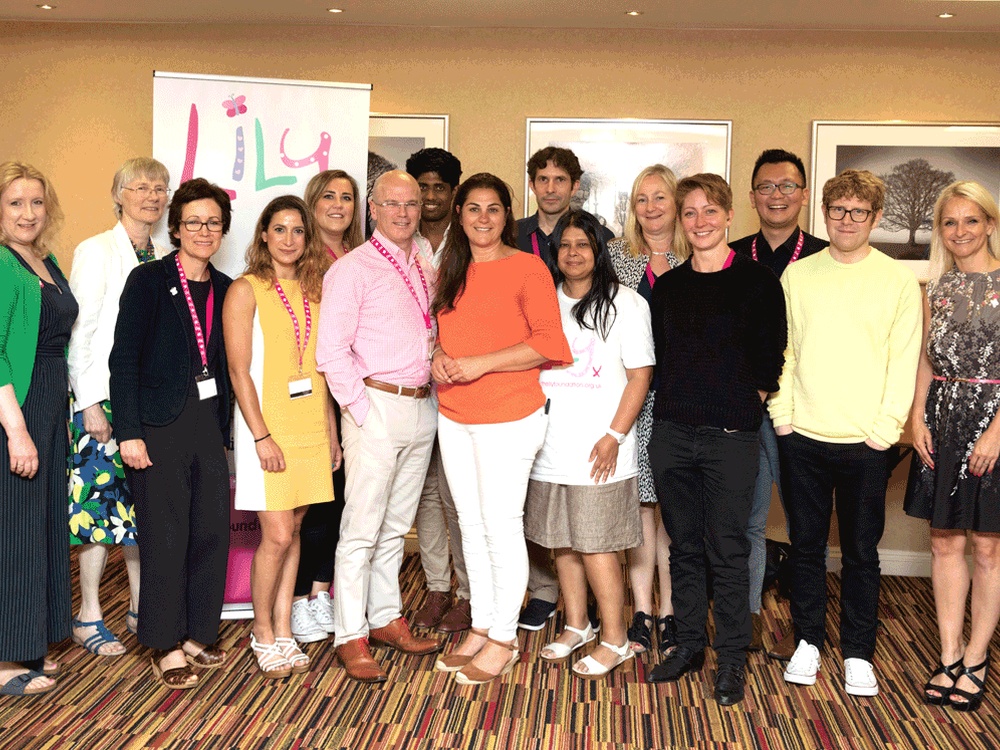1. Providing a genetic diagnosis
The field of mitochondrial medicine is progressing faster than ever thanks to new technologies that are revolutionising the diagnosis of genetic conditions, including mitochondrial disease. The Lily Foundation has funded resources and diagnostic equipment at a number of specialist centres around the UK. A good example is our Lily Exome Sequencing Project, which is helping to provide more mitochondrial families with a confirmed genetic diagnosis. This would not be possible without the involvement of dedicated NHS staff at different stages of the diagnostic journey, including clinical scientists who perform the tests and clinical geneticists who discuss the results with patients and their families. Lily-funded researchers are equally vital to this process of helping to identify the genetic causes of mitochondrial disease on a specific, case-by-case basis. Our partnership with the NHS in this area has been highly successful, with more families now receiving a genetic diagnosis, and is demonstrated in many published scientific papers which show Lily researchers working alongside NHS staff to advance diagnostic services for people with mitochondrial disease.
2. Sharing knowledge
We are constantly working to share the specialist research we fund into mitochondrial disease with NHS services. In addition to scientific papers published by Lily-funded researchers and members of our Medical Board, The Lily Foundation also regularly takes part in NHS multidisciplinary team meetings to advise on how best to improve the advice, support, care and services available to mitochondrial patients and their families. We have also been invited to share our knowledge with doctors at clinical guideline workshops and patient focus groups. This includes annual patient information days held in Newcastle, Oxford and London, which are co-funded by The Lily Foundation and organised by the NHS. Such services are critical to ensuring families have local access to up-to-date information to help them understand and manage their condition.
Online services are another important part of our strategy for sharing information. Our charity is proud to host and maintain the NHS Highly Specialised Services for Rare Mitochondrial Disorders website, which is a valuable resource for anyone affected by mitochondrial disease. The site has had 51,000 users since it's launch in April 2017, and continues to be a valuable and reliable source of information for patients and professionals. Patients who are seen by NHS staff outside of the specialist service are urged to share this website with their local care team.
3. Sharing expertise
One of our key strengths as a charity is the exceptional relationship we have with the NHS mitochondrial specialists, who give their time and expertise on a voluntary basis to support the work we do. We are honoured to have many of these doctors on The Lily Foundation Medical Board. The medical teams also volunteer their time to attend our annual Lily Family Weekend, where they can support, advise and socialise with patients and their families in a relaxed setting. This relationship with NHS staff is crucial if we are to make a difference, and is summed up in a recent quote by Professor Sir Doug Turnbull, Director of the Wellcome Centre for Mitochondrial Research: “Together with The Lily Foundation we will transform the lives of patients with mitochondrial disease.”
Our charity also provides funding for NHS staff who are involved in specialist services, including clinical support and the creation of a national database of patients with a confirmed diagnosis of mitochondrial disease. Having detailed information on patients with mitochondrial disease is important as it allows doctors to study how the disease progresses over time and helps identify eligible patients from all over the UK to take part in research studies or drug trials in the future.
4. Family accommodation
When a child is seriously ill and receiving treatment in hospital it's important that their family is close by. The Lily Foundation has invested over £120,500 in grants to provide family accommodation at, or close to, NHS hospitals in London (Great Ormond Street and Evelina Children's Hospital), Oxford (John Radcliffe Hospital) and Newcastle (Royal Victoria Infirmary). This accommodation is invaluable as it provides a safe, secure and welcoming environment where families can stay together when their children need it most. It also benefits NHS care providers, as it frees up beds on the ward, supports relationship building between staff and families, and allows critical care decisions to be made in person at short notice.
5. Building patient support networks
When a diagnosis of mitochondrial disease is likely or confirmed, NHS doctors recommend The Lily Foundation to patients and their families as the UK's leading mitochondrial charity. Lily provides emotional support, financial help, specialist advice, links with patient groups and other vital services which complement those provided by the NHS. Professor Bobby McFarland, Honorary Consultant Paediatric Neurologist to the Newcastle upon Tyne NHS Hospitals Foundation Trust and a member of the Lily Foundation Medical Board said: "The Lily Foundation is getting the message across about mitochondrial disease. Families are coming together, teaching each other, learning from each other and by experience. That kind of sharing of information is really difficult to deliver in a clinical setting. It's unique...and something that we wouldn't be able to deliver without The Lily Foundation."

